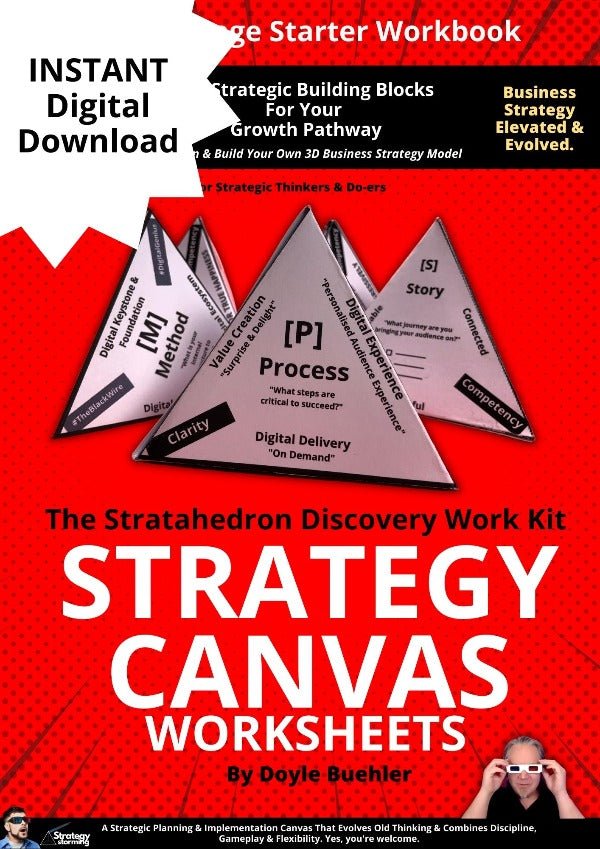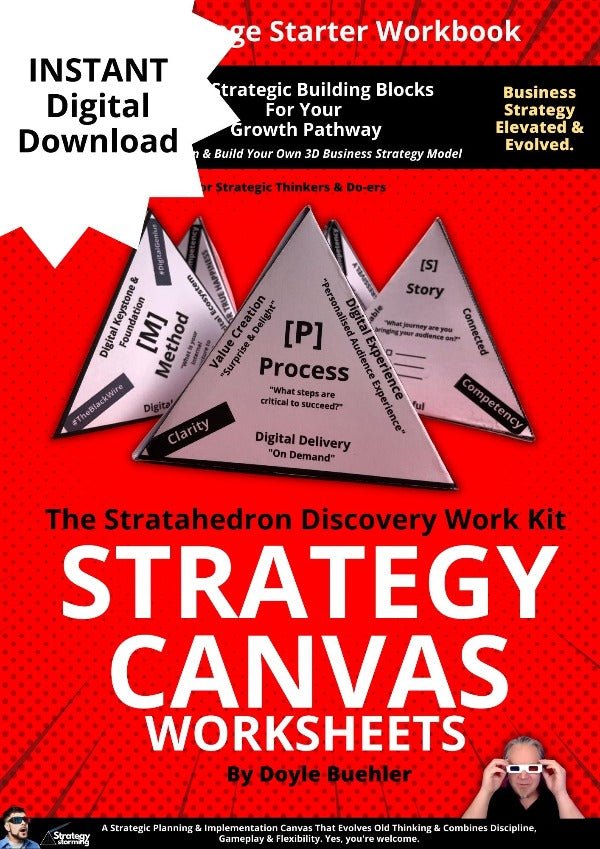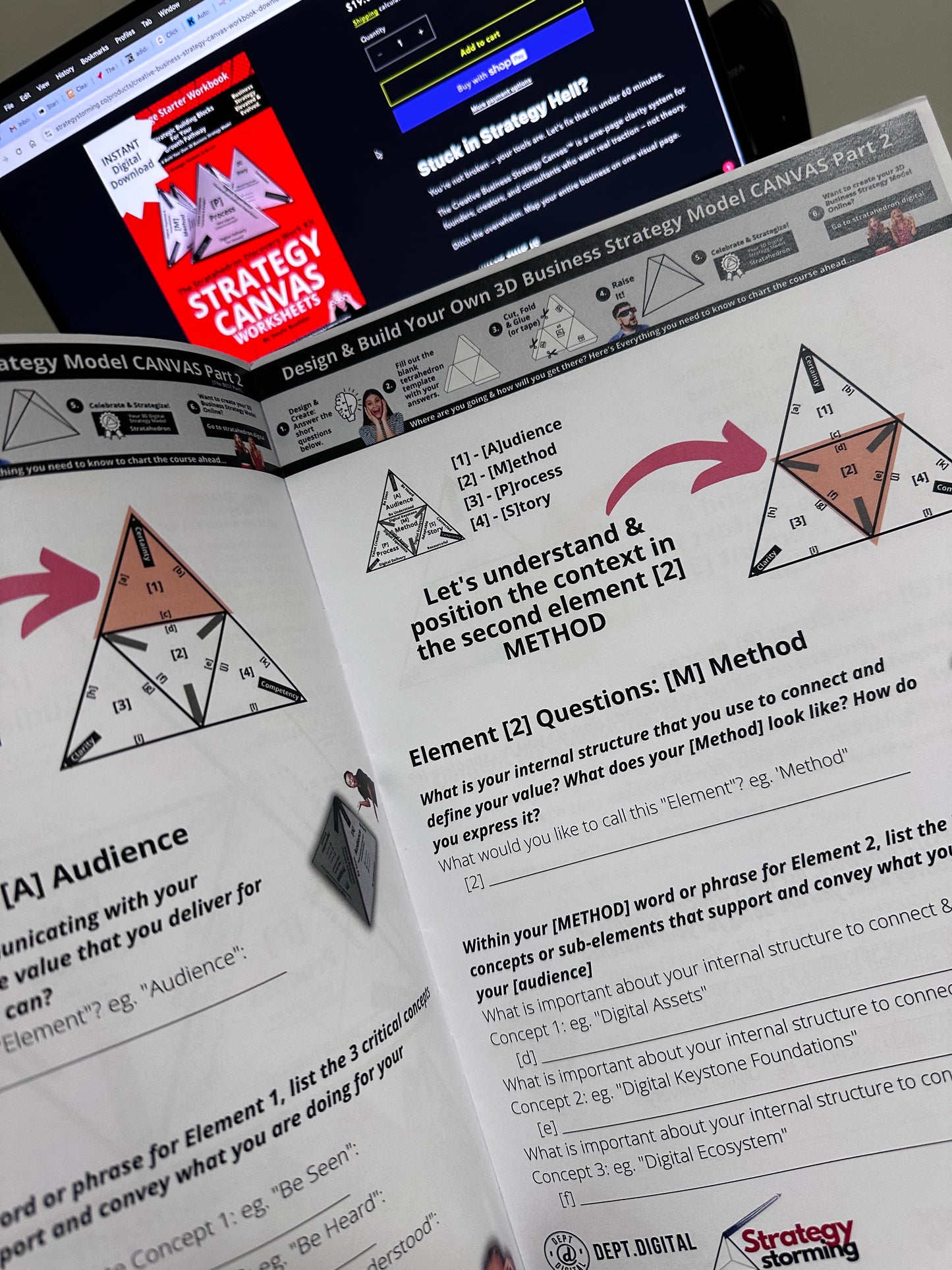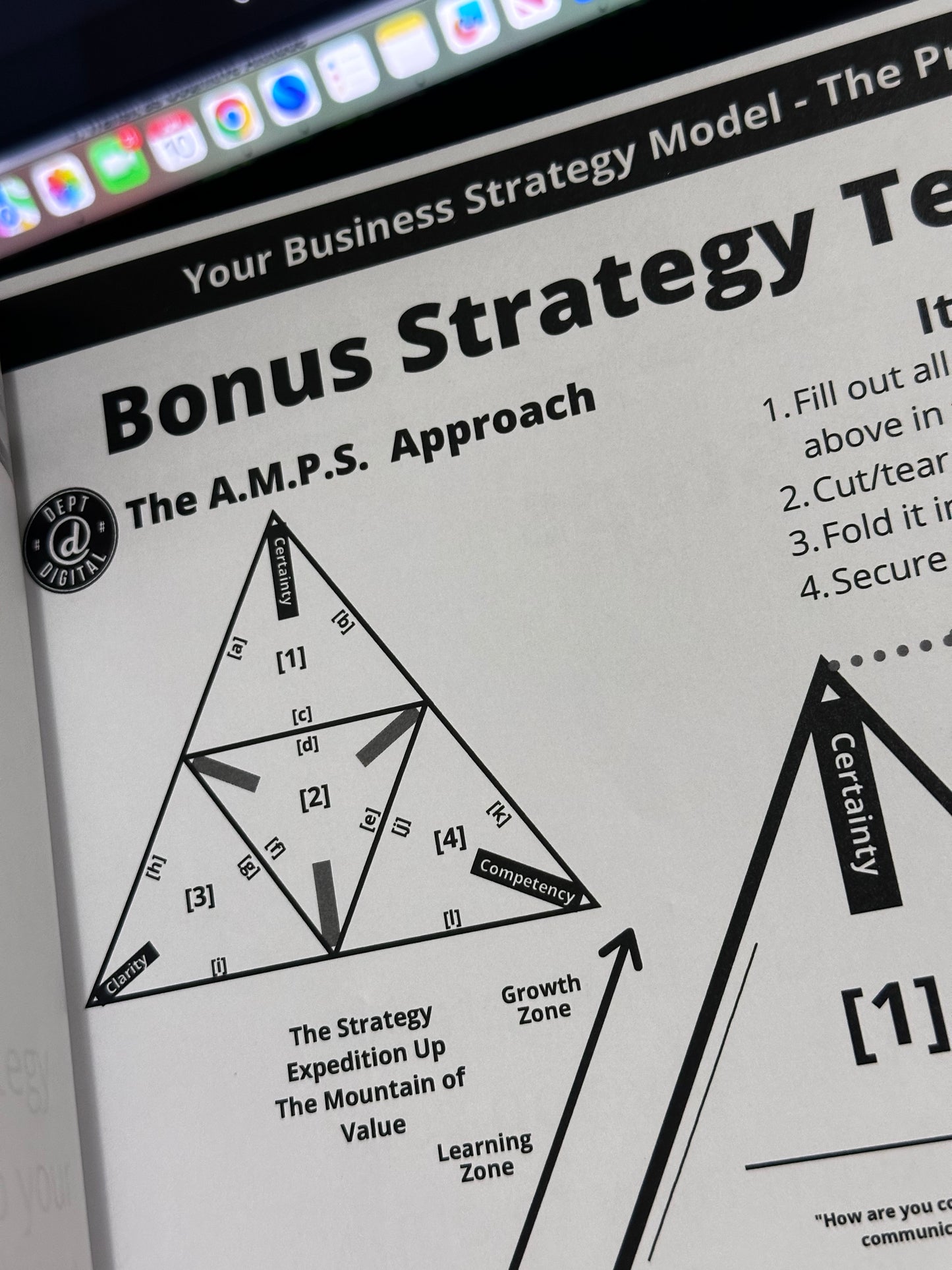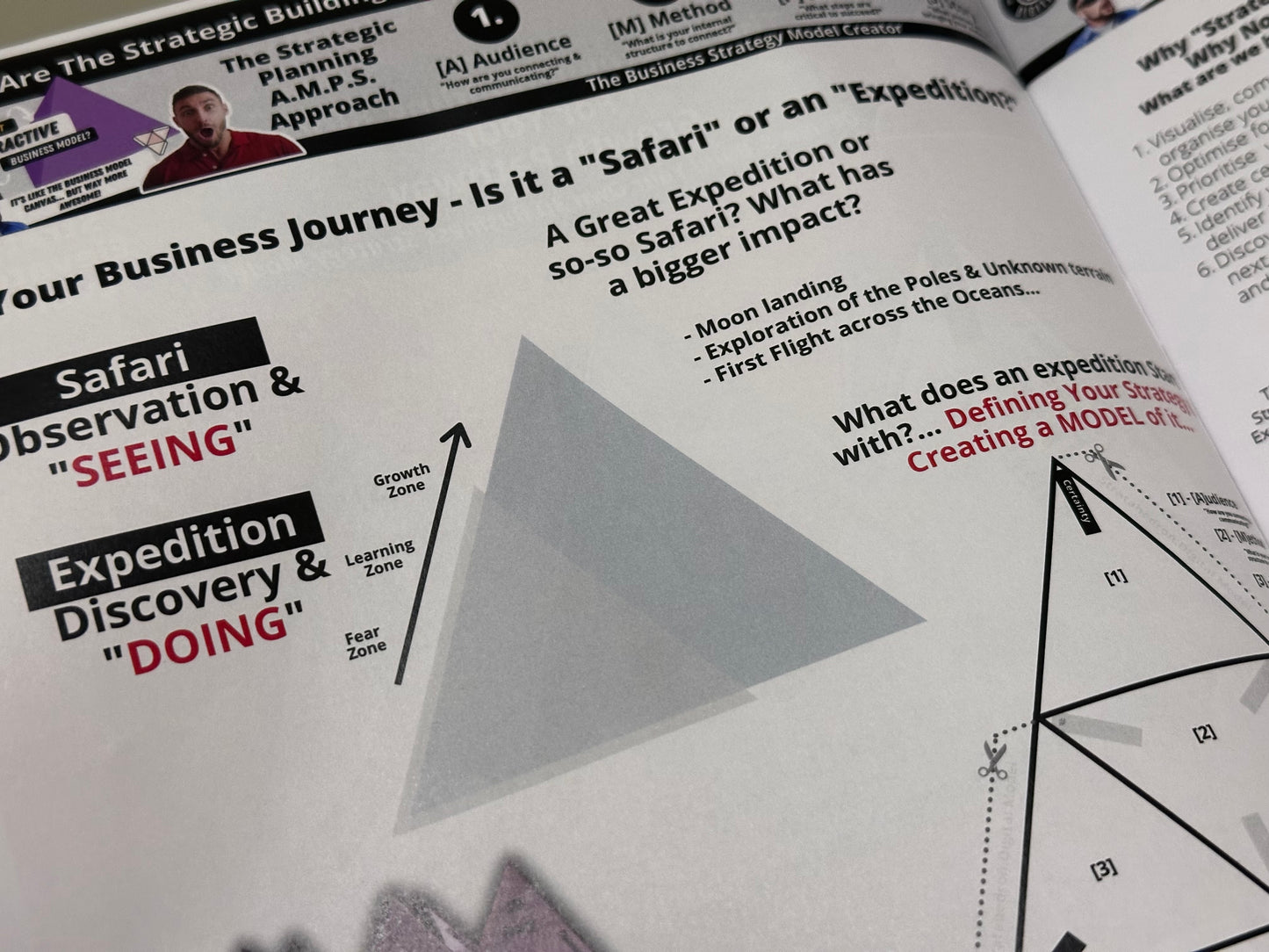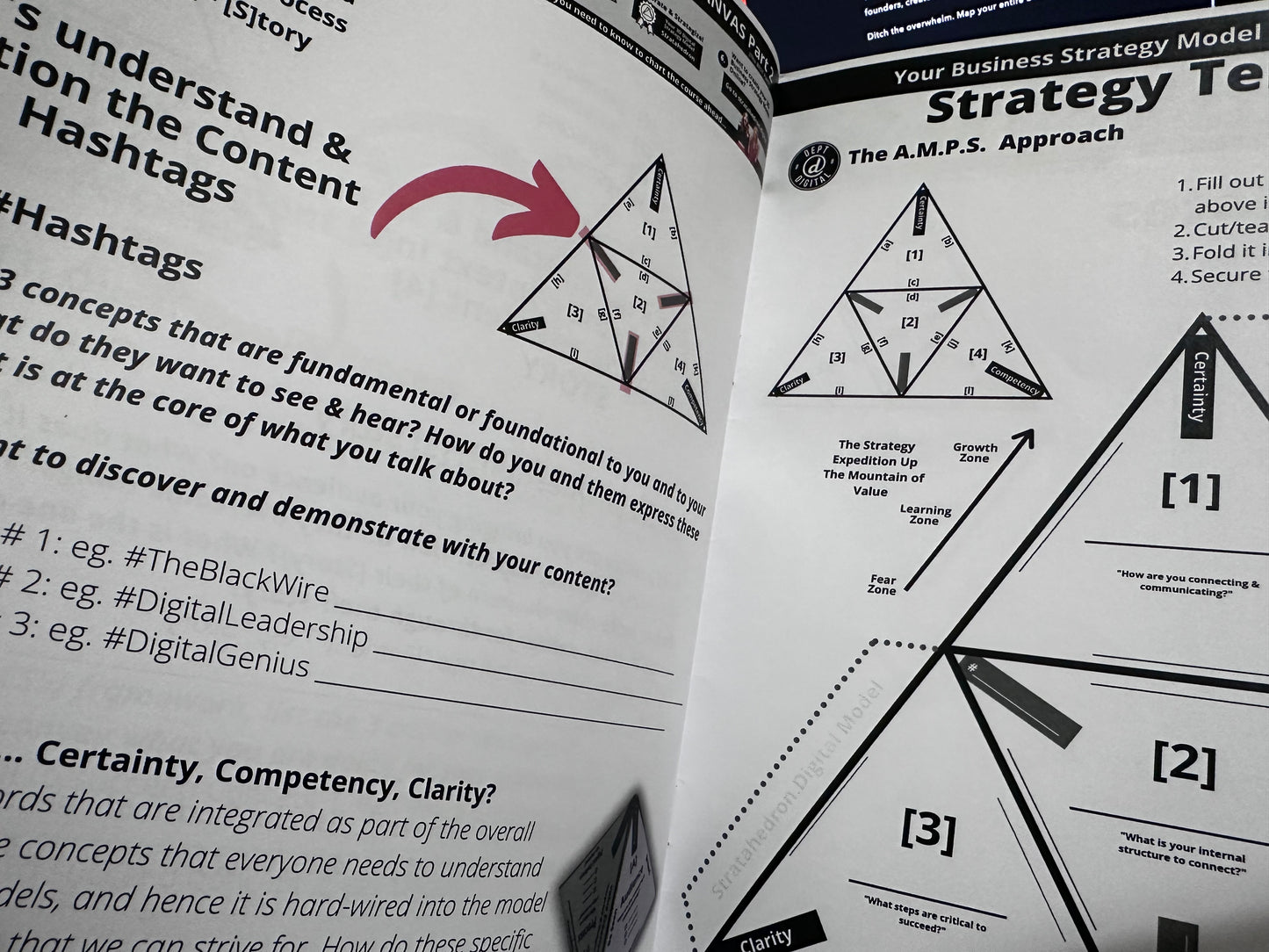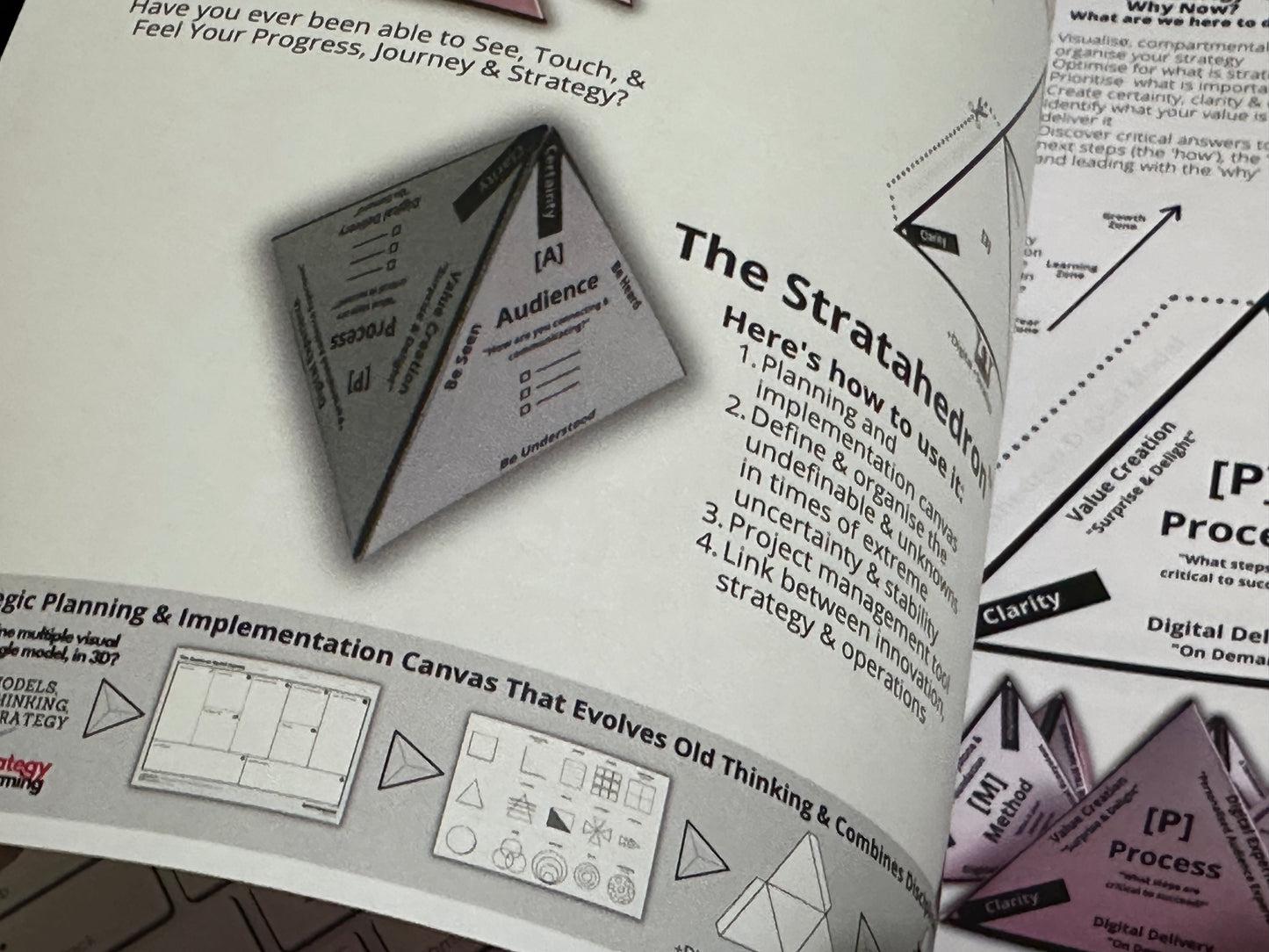
10 Invaluable Strategic Business Insights for Today’s Highly Competitive Business Environment.
Share

Unpack Sun Tzu's "The Art of War" and you get 10 invaluable insights for today’s highly competitive business environment.
Here’s the quick list of how to make the Art of War more strategic for your business:
1. Master the inside scoop on both yourself and your competition. Understanding your strengths and weaknesses, along with those of your adversary, sets you up to win, time and again. If you're clueless about either, expect to take some hits.
2. Dive deep into your game plan. Leaving things to luck is a rookie mistake. Instead, dig into every variable—be it terrain, weather, or your rival's capabilities—to craft an unbeatable strategy.
3. Embrace agility. Even the best-laid plans might need a tweak or a pivot. Be ready and willing to adapt to real-time changes.
4. Employ a little smoke and mirrors. Confuse and unsettle your opponent with clever distractions or feints. Used wisely, deception isn't just effective; it's an art form.
5. Go for the jugular—but choose the right spot. Aim for your competitor's soft spots instead of butting heads with their strong suits. This isn't just smart; it's a shortcut to victory.
6. Leverage your home turf. Familiar territory gives you the upper hand, whether it's a market you know like the back of your hand or a physical locale.
7. Know when to hit the brakes. Pulling back isn't admitting defeat; it's a strategic move to regather your forces and come back stronger.
8. Drill in discipline. A tightly-run ship will outperform a chaotic one, every time. Keep your team on point and in sync.
9. Be the change you want to see. Leading isn't just about giving orders; it's about setting the bar with your own actions.
10. Win without warring. The most elegant victories sidestep the battlefield altogether. If you can win without open conflict, through negotiation or other means, that's the true art of war.
What should you do next with this insight?
Now that you have gained insights from Sun Tzu's principles, it's time to apply them to your business strategy.

Start by conducting a thorough analysis of your competition, identifying your strengths, and assessing the changing market landscape.
Use this information to refine your strategy and align your resources accordingly.
Remember, strategy is an ongoing process, so regularly review and adapt your approach to stay ahead in the ever-evolving business world.
Sun Tzu's principles aren't confined to the battlefield. These gems also sparkle in business scenarios, athletic competitions, and personal relationships. It's a manual for thinking like a strategist and conquering your goals.
Related Posts
-

How to Use Strategy to Improve Revenue: A Comprehensive Guide
Finding ways to improve revenue is essential & possible with Strategy
-
![The Entrepreneur Journey is Broken? [Part 1] - Strategystorming - The Strategy Studio & Shop for Strategic Thinkers](//strategystorming.co/cdn/shop/articles/the-entrepreneur-journey-is-broken-part-1-590109.webp?v=1701206679&width=170)
The Entrepreneur Journey is Broken? [Part 1]
What if the Entrepreneur Journey could be different?
-

Creating Certainty in an Uncertain Business Environment with The Business Design Strategy Sprint
-

How do you build a Strategy Operating System?
-

Business Strategy Mastery Workshop - Strategy Masterclass October 2022 Intake - Session Now Closed
Business Strategy Mastery Workshop - Strategy Masterclass October 2022 Intake Now Closed. It's time to rethink & reinvent how we think about strategy, but also how we understand, design, and create it. Get the thinking, tools, and know-how to craft business strategy like never before.
-

8 Simple Questions Every Strategy Must Answer to Be Able to See Your Greatest Competitive Advantage
Your biggest competitive advantage that you can ever have is how you think and how you problem solve better than anyone else, especially in these challenging times.
This is your strategic thinking, only you have it, and your future really does depend on it.
-

Is Business An Art Or More About Science? Hint: It's Neither
👉Being more clever
👉Being more creative
👉Being more skillful
👉Thinking more strategically
👉Reducing complex ideas & problems
👉Crafting uncommon solutions
👉Embracing complexity
-
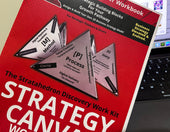
Is Your Strategy Still Just a Pile of Notes and Guesswork?
The Creative Business Strategy Canvas™ is the clarity tool I built after hitting that wall one too many times.It’s one page. Visual. Brutal. Honest.
It shows you your business — as it actually is — so you can build what it’s meant to be.
-

Reinventing Rapid Business Growth With The Strategy SuperModels
Enter The World of Business Strategy SuperModels - Redefine and Reinvent
-

Unlock Business Growth with The Growth Pathway Strategy GPS SuperModel
Unlock Business Growth with The Growth Pathway Strategy GPS SuperModel
-

4 Strategic Steps to Rethink and Reimagine SWOT Analysis for Your Business
Here's How to Reimagine & Customize your SWOT with a Custom SWOT Analysis Worksheet
-
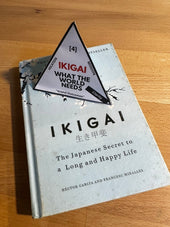
Reimagining & Reinventing Ikigai for Brand Strategy Design Consultants & Strategists
Exploring Brand Strategy Models & Case Studies In Strategy - The Reimagining of the Ikigai Model - The Strategy Super Model Series
-
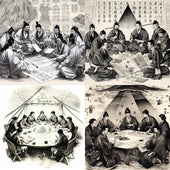
Exploring Brand Strategy SuperModels & Case Studies in Strategy
-

FlightPath Day 80 of 100: Rhythm Over Hustle - How Founders don’t burn out from work
-

Want to Obtain Better Business Results in 4 Easy Steps? Keep it Simple - Here's A Really Simple Strategy With BIG Impact
-

10 Must-Haves to Master Your Digital Landscape - The Strategy Playbook
Transform Your Business Online With Clearcut Success Strategies In This Strategy Playbook
-

Do You Want to Lose Track of Your ‘Why’ & ‘How’ amongst all of the ‘WTFs’?
You’ll build out your business journey as your “FlightPath” with a close-knit group using the wisdom of your peers for reimagining your perspective, driving your OWN priorities & finding your OWN critical solutions.
-

How to Use Strategy to Improve Brand Awareness - The Brand Strategy Guide
Here's How to Use Strategy to Improve Your Brand Awareness
-

How to Use Strategy to Improve Market Share: What's Really Important?
How Do You Improve Market Share With Strategy?
-

How to Use Strategy to Improve Innovation - Your Innovation Playbook
Understanding the Connection Between Strategy and Innovation
-

How to Use Strategy to Improve Growth - A Definitive Guide
Strategy is an ongoing, dynamic process of Growth
-

10 Rules of a Strategy-Focussed Entrepreneur That Really Matter
What's really important for a strategy-focussed entrepreneur?
-

10 Rules That Really Matter for a Digital-Focussed Enterprise
Here's 10 simple rules to see if you are a digital-focussed business.
-

The Strategic Planning Success Blueprint: Navigating the Complex World of Planning With The Strategic Planning Checklist
-

The Annual Strategic Planning Panic Season Has Begun! Ditch the Drama, Embrace the Plan: Less Zigging, More Winning!
Strategic Planning Panic Season. Ditch the Drama, Embrace the Plan: Less Zigging, More Winning!
-

Unlock Your Business Brand Secrets: Master Your Brand & Strategy with the Strategystorming Sprint.
Don't let market disruptions steer you off course; take the helm of your business with unwavering confidence by mastering the art of strategic planning. This is your roadmap to not just surviving but thriving in today's volatile business landscape.
-

Can AI make you MORE Creative, Curious, Innovative AND more strategic? Yes or no?
Can AI make you MORE Creative, Curious, Innovative AND more strategic? Yes or no?
What if it could?
-

What You Think You Already May Know About Cognitive Biases...May Be Wrong
-

A Good Strategic Thinker And A BETTER Strategic Thinker - What's The Difference?
Improve your strategic thinking skills and increase your growth potential.
-
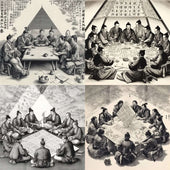
Good Strategy vs Bad Strategy. 5 Simple Symptoms To Identify a Really Bad Strategy.
What are the symptoms and signals that can help diagnose a potentially Good Strategy vs an ineffective Bad strategy?
-

Why Your Strategy Must Not Become A To Do List - The Only 5 Strategic Questions You Cannot Exist Without
By taking the time to answer these questions, you can develop a clear understanding of your company's purpose, its big idea, and how you're going to deliver value to your customers. This will help you to stay focused and on track as you build your business.
-

IMPACT: What would you actually do if you had more of it for your business?
Here's how to find and start to build your impact that lasts with digital strategy
-

The Business Top Gun's Playbook: Harnessing Speed of Strategy and Strategic Direction for Navigation for Impact
-

Which 4 Critical Components You Might Be Missing With Your Strategy - Here's How to Make Your Strategy Quicker, Cheaper & Easier
Is Your Strategy Too Hard? Here's How to Make Your Strategy easier to create, implement & execute without breaking a sweat
-

Strategystorming For Your Future: How Can Reinventing Strategy Help Future-Proof Your Business?
The Future May Be Uncertain, But You Don't Need To Be.
Strategystorming is a powerful tool for achieving success and creating a brighter future. By taking control of your destiny and developing effective strategies, you can overcome any obstacle and achieve your goals, no matter how big or small. -

The Power Of The Prompt - The Strategic Look At Artificial Intelligence Alignment & Business
-

Do You Have A Brand Plan? Here's how to Rethink & Stack the odds and start winning with a brand strategy
-

The 5 Key Strategic Factors You Need To Consider to Integrating AI into your Business Now. Here's How To Get Started to Integrate AI Effectively Into Your Business
5 Key Strategic Factors You Need To Consider In Integrating AI into your Business
What would happen if 80% of what you do is commoditized into the same thing that everyone else is doing? If you can no longer compete on price, and everything is now a commodity, what would you do? How can you accelerate your business while everything is accelerating around you?
-

What's Good Strategy or Bad Strategy? Fighting Fires Is No Longer a Startup Badge of Honour. We need to Reinvent How We Think About Strategy For Startups.
What's Good Strategy or Bad Strategy? Fighting Fires Is No Longer a Startup Badge of Honour. We need to Reinvent How We Think About Strategy For Startups and Smart Strategy for Business.
-

Sometimes we can be extremely surprised at how 'strategic' some things are when we compare it to other things. Here's a case in point.
Here's a case in point about how to get epic things done...strategically - without trying that hard.
-

Anyone can start a business, but can you finish one? Can you get yours to the finish line without a strategy?
Anyone can start a business, but it takes a special skill to finish one - strategy builds a business built to last. Are you building your business to last? It’s not a map, not a business model, not a SWOT, not a business plan, not a 1-page Marketing Plan; it's your strategy operating system that defines the difference.
-

Strategy is about change, and we are all architects of change with our strategic thinking
You're In The Business of Change. You Just Don't Know It...Yet.
What does it take to see Change?
How do we adapt change and think more strategically in the solutions that we deliver, and want to deliver?
-
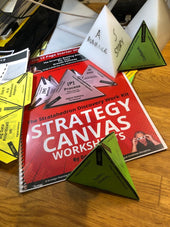
Why being agile doesn’t save a small business? It’s more about your strategic thinking.
The solution to being agile is more about strategy and your strategic thinking ability
-

The Strategystorming Strategy Studio & Shop Launch Event Speakers Summary
It's strategic clarity & #certainty to help you know how to craft a better strategy, and use strategic & tactical tools for profitable growth and a superior ROI by leveraging the power of your brand.
-

The True Power of Reinvention for Business & Rethinking How We Create Remarkable, Winning Strategies - The Strategystorming Strategy Studio & Shop Launch
-

The Truth About What You Should Be Focussing More On in Your Business - Hint: It's 99% invisible
We don't investigate fully how our customers and audience are thinking - we simply gloss over what we think they need. We rarely feel that we 'need' a strategy to enhance what we're doing to drive profitability and how to win - or that it's something that only big companies have to do to please their corporate rulers. And, seldom do we use any systems to create better efficiencies.
-

How Easy Is It To Sacrifice Tomorrow for Today, Without Even Knowing It? Are You A Slave To The Now Because of Your Strategy in Business?
How Easy Is It To Sacrifice Tomorrow for Today, Without Even Knowing It? Are You A Slave To The Now Because of Your Strategy in Business?
-
![#SmartStrategy [Designing Your Strategy For Business] - Strategystorming - The Strategy Studio & Shop for Strategic Thinkers](//strategystorming.co/cdn/shop/articles/smartstrategy-designing-your-strategy-for-business-256943.jpg?v=1693515536&width=170)
#SmartStrategy [Designing Your Strategy For Business]
Strategy is often what you need to do, but also what you don't need to do. It tells you what you see, but also what you don’t see.
-

Is Bigger All There Is in Business? What does the word GROWTH actually mean for GROWING a business?
If only we could grow more, if only we could scale more, if only we could...
-

Is 'Bigger' All There Is? Reinventing & Rethinking Your Business With Strategy
Strategystorming is the new thinking place where we become better strategic thinkers, by applying strategy here and now, sharing what strategy is for business, and how best to realise it and craft it into remarkable experiences.
-

Do You Know The Biggest Reasons Why a Business Fails? It's Not Because of Tech & Creativity
Why does a business fail, and what can you do about it?
Planning & #strategy is not a "to-do list"
It's not even a list of goals you want to achieve, or "what do you want to become in 2022?" (are you a flower? 😂)
-

What will it take for things to return to business as usual?
It's not business as usual anymore. The Easy Strategy Lab is where we find out how to Reinvent & Reimagine & Rethink business.
We are back with a Strategystorming Show on the 4 greatest myths about strategy, change & reinvention - the misconceptions and outdated assumptions that might be killing your efforts or the efforts of your clients today.
-

Strategy Expeditions for Reinvention, Growth & Performance by Strategystorming - The Strategy Mastery Training Course Workshop
What's Creative Intelligence & Strategic Innovation?Learning strategy and implementation with creative tools and storytelling.Unleash the potential within your business or clients to solve your unique business challenges and create dynamic resilient futures.Meet our Creative Intelligence and Strategic Innovation course - Strategy Mastery Training.
It's education, but not as you know it.
It's a workshop Expedition - a Strategy Expedition to get you to your destination... and back, learning, creating, understanding and crafting your ultimate strategy of resilience & success.

![The Entrepreneur Journey is Broken? [Part 1] - Strategystorming - The Strategy Studio & Shop for Strategic Thinkers](http://strategystorming.co/cdn/shop/articles/the-entrepreneur-journey-is-broken-part-1-590109.webp?v=1701206679&width=170)













































![#SmartStrategy [Designing Your Strategy For Business] - Strategystorming - The Strategy Studio & Shop for Strategic Thinkers](http://strategystorming.co/cdn/shop/articles/smartstrategy-designing-your-strategy-for-business-256943.jpg?v=1693515536&width=170)




